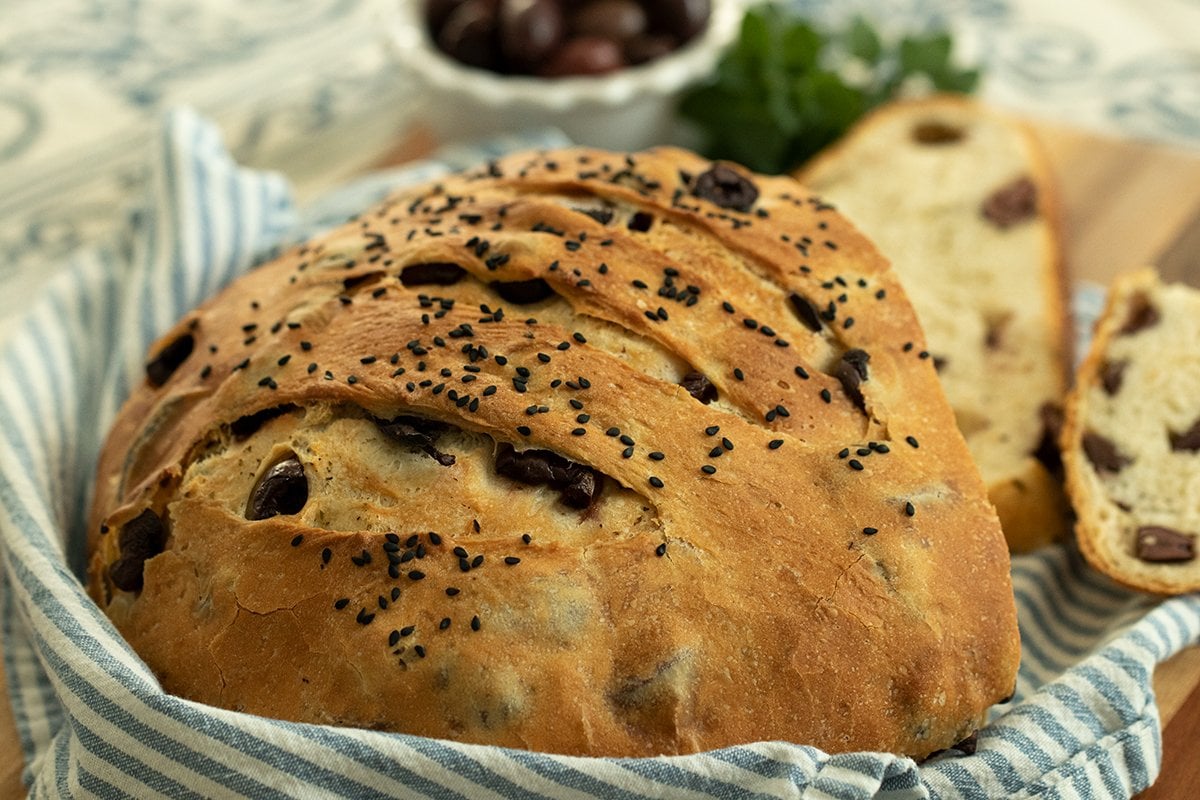francescool
Active member
Greek olive bread is one of my favorite breads!! It's so unique and adds a lot of flavor to your typical table bread. You can use your existing bread recipe and simply add your favourite type of olives to it or you can use this recipe that is specifically made to taste great with olives. I like to use kalamata, but that's just my preference. Kalamata olives are probably the most traditional and popular olives.

 www.dimitrasdishes.com
www.dimitrasdishes.com

Eliopsomo: Greek Olive Bread
The Greek word eliopsomo translates to olive (elia) bread (psomi). Homemade bread is the ultimate comfort food. The addition of olives makes this a festive bread that is perfect for entertaining.
 www.dimitrasdishes.com
www.dimitrasdishes.com




